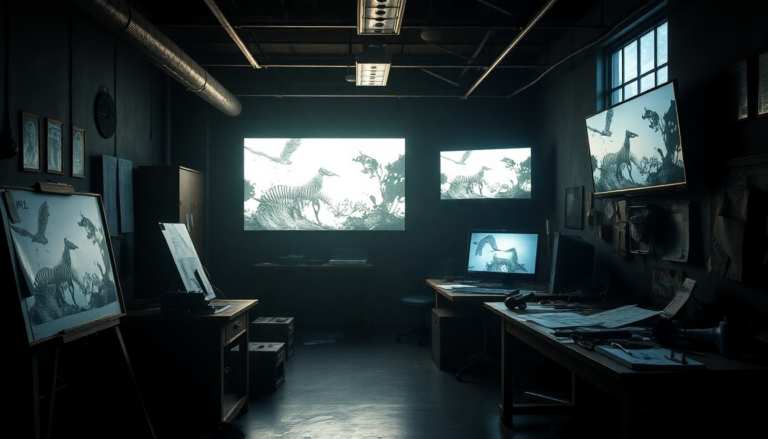Argomenti trattati
In the bustling realm of gaming, the narrative can shift dramatically with a single tweet. Recently, Moon Studios, known for its indie darling Ori series, has found itself embroiled in an unexpected storm of controversy. The studio’s latest action RPG, No Rest for the Wicked, has not only drawn comparisons to titans like Dark Souls and Diablo but has also ignited a fiery debate about game development, criticism, and the broader gaming culture. As the founder, Thomas Mahler, steps into the spotlight, his responses to criticism have left many questioning the very principles of game development and community engagement.
The evolution of No Rest for the Wicked
Initially launched in early access, No Rest for the Wicked was intended to be a grand tapestry of gameplay mechanics, merging elements from various genres into a cohesive experience. Picture it: the visceral action akin to Elden Ring, combined with an isometric perspective and the addictive allure of looting. With its intricate world design and nuanced animation, it’s easy to see how players could become captivated. I remember when I first started exploring the lush, eerie landscapes of Sacra—each corner revealing a new threat or treasure, the thrill of discovery heightened by the haunting soundtrack.
However, the recently released Breach update aimed to refine gameplay mechanics, focusing on big combos and stamina management. Unfortunately, this shift has not resonated with all players, leading to a significant uptick in negative feedback on platforms like Steam. This is a classic example of how even the most ambitious updates can backfire—who hasn’t experienced the frustration of a favorite game changing in a way that just doesn’t feel right?
The reaction to criticism
It’s in the wake of this backlash that Mahler’s comments took center stage. His assertion that the negative reviews stemmed from an organized campaign against the game has sparked outrage and confusion. Critics have pointed out that it’s not uncommon for players to voice their dissatisfaction with changes they don’t agree with—after all, isn’t that part of the gaming culture? Yet, in Mahler’s defense, his unfiltered reactions reveal a side of game development that many don’t often see: the emotional toll that public scrutiny can take on creators. It’s easy to forget that behind every game lies a team of passionate individuals, pouring their hearts into a project.
However, when Mahler invoked the specter of cancel culture and likened himself to historical figures persecuted for their beliefs, it felt like a misstep. Many industry insiders and fans alike were left shaking their heads—was this really the best way to engage with the community? The emotional charge behind his words seemed to betray a deeper frustration, perhaps reflecting the pressures faced by indie developers trying to carve out a niche in a competitive landscape.
The artistry of No Rest for the Wicked
Despite the surrounding chaos, the artistry of No Rest for the Wicked remains undeniable. The game immerses players in a dark fantasy world, rich with vivid visuals that evoke the works of classic artists. The quests feel like epic tales, drawing players into the narrative with haunting melodies and intricate sound design. I recall one particularly gripping quest where I followed the river to a desolate dell, driven by the echoes of the past—the storytelling is nothing short of captivating.
Each encounter, each boss fight, is meticulously designed to ensure that every player’s journey is unique. The attention to detail—from the way characters animate to the environmental storytelling—speaks volumes about Moon Studios’ commitment to quality. Yet, this dedication can sometimes lead to a disconnect when player expectations clash with creative visions. It’s a delicate balance that many developers struggle to maintain, and it’s a shame that the current discourse has overshadowed the game’s artistic achievements.
The future of Moon Studios
As the dust settles, one can’t help but wonder about the future of Moon Studios and its flagship title. Will Mahler’s tweets and public statements continue to overshadow the game’s merits? The challenge of navigating public perception in the gaming industry is immense, and the stakes have never been higher. Game developers today face a unique landscape, where feedback can come in waves—both constructive and destructive—often with little warning.
Ultimately, the heart of the matter lies in the relationship between creators and their audience. It’s a nuanced dance between innovation and expectation, with both sides having valid points to consider. Personally, I believe that open dialogue is crucial, but it must be approached with humility and a willingness to listen. As we move forward, perhaps a little more understanding and a lot less finger-pointing could lead to a healthier gaming community overall.
So, what’s next for No Rest for the Wicked? Only time will tell if Mahler can mend the rift between the studio and its fanbase, but one thing is for certain: this story is far from over. As gamers, we’re all invested in these narratives—whether we’re navigating the treacherous lands of Sacra or grappling with the complexities of the gaming industry. It’s a wild ride, and I, for one, am here for every twist and turn.

